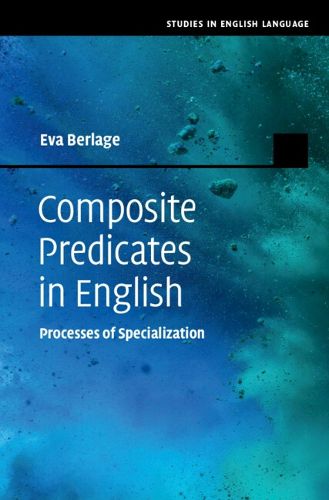Readings Newsletter
Become a Readings Member to make your shopping experience even easier.
Sign in or sign up for free!
You’re not far away from qualifying for FREE standard shipping within Australia
You’ve qualified for FREE standard shipping within Australia
The cart is loading…






Composite Predicates (CPs) are of particular interest to linguists in that only some of them are semantically restricted in present-day English, while others are not. This book explores the semantic-syntactic evolution of twenty-four different CPs in English from the sixteenth to twentieth centuries, showing why some specialize over time while others do not. It highlights that the semantic scope and evolution of the morphologically and semantically related simple verb acts as a powerful predictor of whether or not a CP becomes semantically restricted in the course of time. In all those cases where CPs undergo specialization, semantic changes take place earlier than syntactic ones. Finally, large-scale corpus-analyses reveal that the CPs, which, in comparison to their morphologically simple verbs, can be considered analytic constructions, decrease from the nineteenth to twentieth century or show consistently low frequencies. This finding runs counter to the trend of English to become increasingly analytic.
$9.00 standard shipping within Australia
FREE standard shipping within Australia for orders over $100.00
Express & International shipping calculated at checkout
Composite Predicates (CPs) are of particular interest to linguists in that only some of them are semantically restricted in present-day English, while others are not. This book explores the semantic-syntactic evolution of twenty-four different CPs in English from the sixteenth to twentieth centuries, showing why some specialize over time while others do not. It highlights that the semantic scope and evolution of the morphologically and semantically related simple verb acts as a powerful predictor of whether or not a CP becomes semantically restricted in the course of time. In all those cases where CPs undergo specialization, semantic changes take place earlier than syntactic ones. Finally, large-scale corpus-analyses reveal that the CPs, which, in comparison to their morphologically simple verbs, can be considered analytic constructions, decrease from the nineteenth to twentieth century or show consistently low frequencies. This finding runs counter to the trend of English to become increasingly analytic.